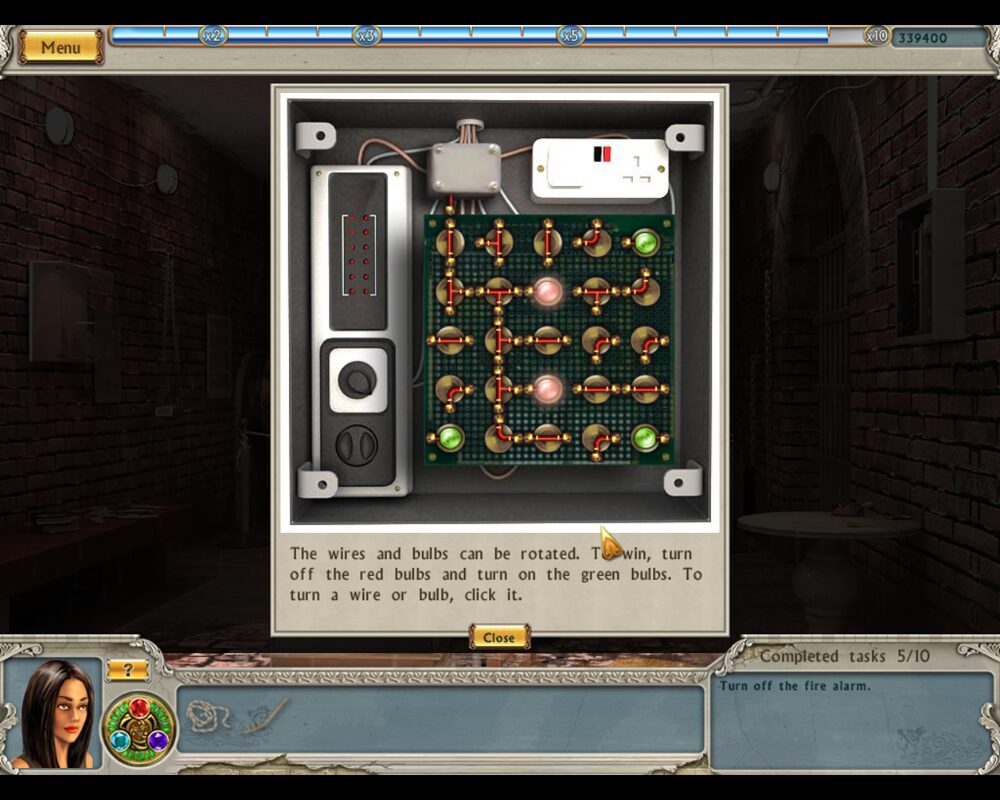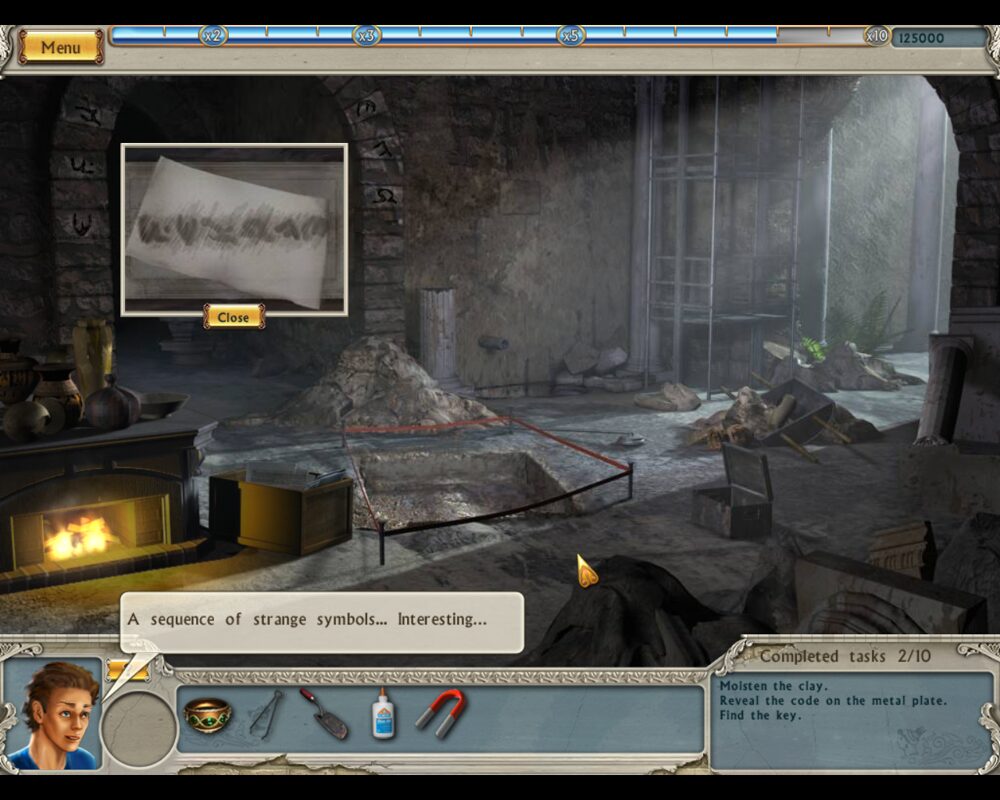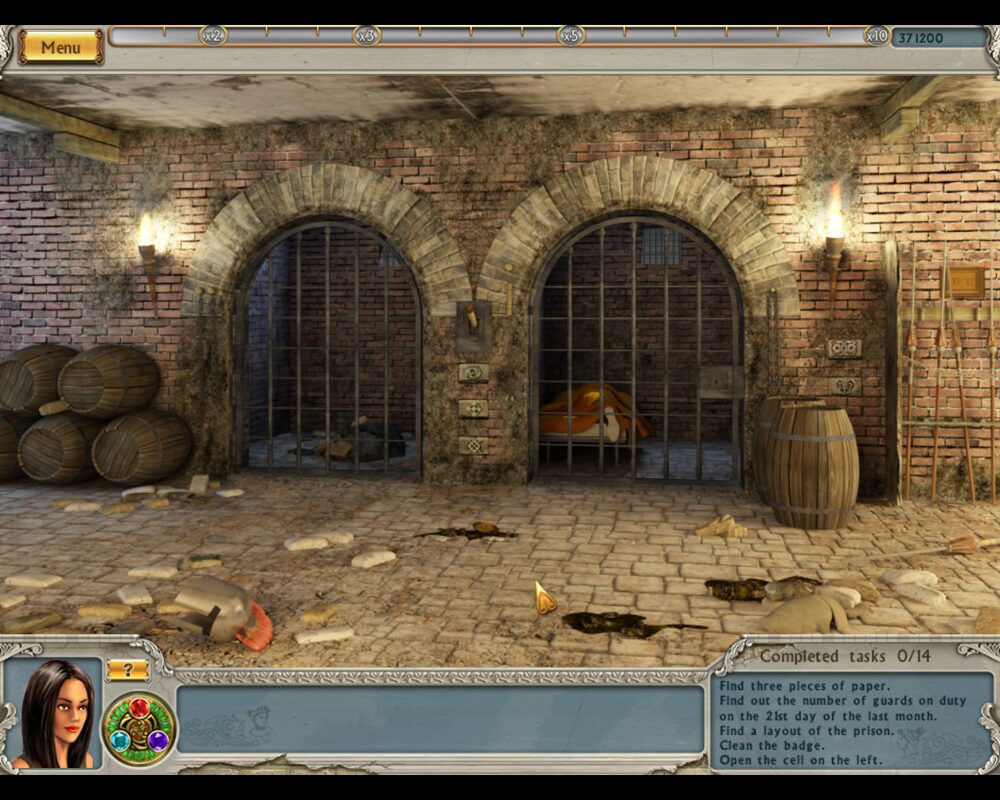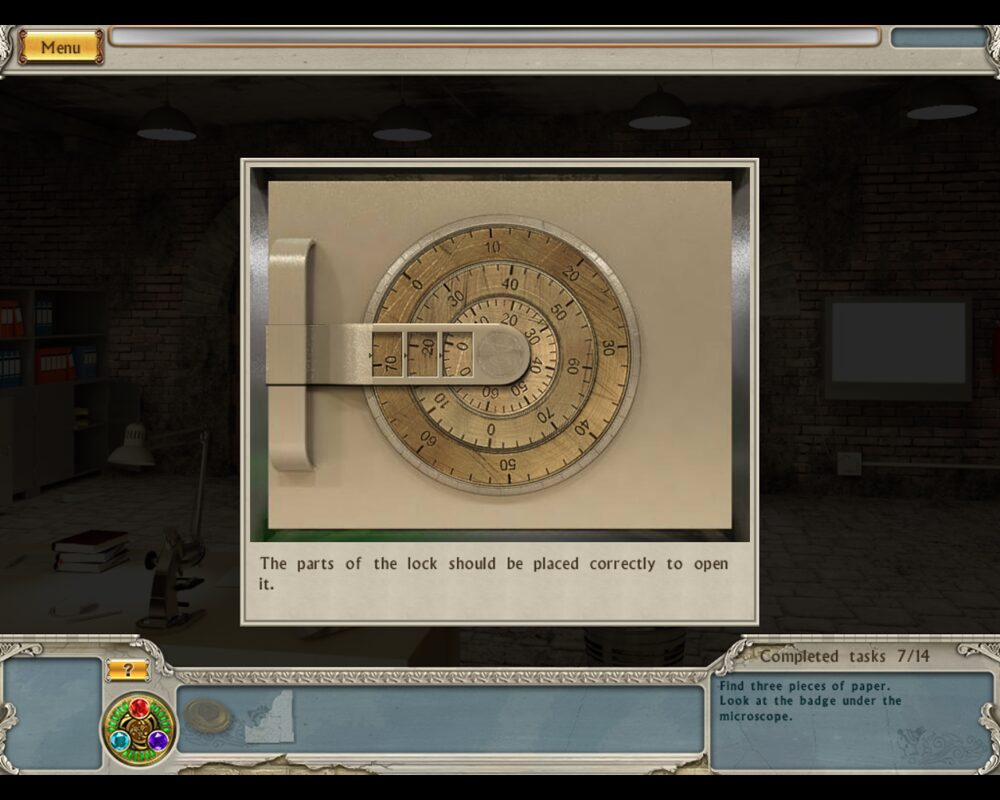Retro Replay Review
Gameplay
Alabama Smith in Escape from Pompeii follows a classic point-and-click adventure formula, placing players directly into richly detailed scenes of an ancient Roman city. The majority of the interface sits at the bottom of the screen, where you’ll find your inventory slots, a portrait of Alabama, and the time-travel medallion neatly arranged to the left. To the right, a concise list of objectives keeps you oriented as you scour each environment for hidden objects and clues. Clicking on hotspots reveals interactive windows that can display close-ups of scenery, required items, or initiate mini-games.
(HEY YOU!! We hope you enjoy! We try not to run ads. So basically, this is a very expensive hobby running this site. Please consider joining us for updates, forums, and more. Network w/ us to make some cash or friends while retro gaming, and you can win some free retro games for posting. Okay, carry on 👍)
Puzzles are designed for casual players, with inventory items that can be dragged and combined to unlock doors, decipher codes, or reconstruct torn documents. On casual mode, mini-games—often simple jigsaw or concentration challenges—can be skipped after a brief timer, so the main focus remains on exploration and story progression. Expert mode, by contrast, demands manual assembly of multi-piece objects and faster, more precise clicking, raising the stakes for veteran adventure gamers.
The highlight of the gameplay is the time-travel mechanic. As Alabama discovers the mysterious medallion, he shifts between present-day Pompeii and its days before the eruption. This layering allows you to collect tools and information in one timeline to solve puzzles in the other, weaving a satisfying back-and-forth dynamic. A hint button offers guided assistance by highlighting a relevant hotspot, though it requires roughly a minute to recharge—discouraging over-reliance. A score meter at the top tracks your progress, deducting points for too many misclicks and rewarding efficient exploration.
Graphics
The visual presentation of Escape from Pompeii leans into richly painted backgrounds, evoking the bustling streets and grand villas of ancient Rome. Textures are hand-drawn, giving each room a distinct atmosphere—from the sun-bleached forum to the shadowy confines of an underground chamber. Color palettes shift subtly between timelines, with warmer tones illuminating pre-eruption Pompeii and muted grays suggesting its modern-day ruins.
The user interface blends seamlessly with the art style. The inventory bar is unobtrusive, with small but clear icons for collected artifacts, while the medallion and objective panel feature thematic engraving motifs. Portraits of Alabama Smith convey personality—his eyebrow raises when you’re close to a crucial item, and he looks mildly concerned if you linger too long. Overall, the UI feels polished and intuitive without detracting from the immersive environments.
Mini-games and interactive windows maintain the same attention to detail, presenting crisp graphics even at the lower resolutions typical of casual titles. When multiple windows are open—say, a piece of parchment next to its ciphering device—the layering system keeps everything clickable and legible. Though the game doesn’t push the boundaries of modern 3D rendering, its artistic consistency and clear visual cues make for a pleasant, easy-on-the-eyes experience.
Story
You step into the shoes of Alabama Smith, a charismatic American archaeology student dispatched to Italy by his university. What begins as routine research quickly unravels into an extraordinary adventure when he stumbles upon a hidden time-travel device. The premise cleverly blends academic intrigue with sci-fi elements, setting the stage for a journey through two eras of Pompeii’s history.
As you delve deeper, a shadowy secret society emerges, intent on exploiting the time-travel medallion for nefarious ends. Clues scattered across ancient scrolls and modern blueprints guide Alabama through conspiratorial twists and moral quandaries. Though the narrative is concise, each discovery—be it a coded message or an anachronistic artifact—feels meaningful, propelling the plot forward at a brisk, satisfying pace.
Because the game is moderately short, story beats are delivered in tight sequences that avoid filler. Voice overs and occasional journal entries enrich character development, while environmental storytelling—like frescoes depicting Pompeii’s final days—adds historical depth. Despite its casual focus, the narrative strikes a balance between lighthearted banter and genuine stakes, keeping players engaged until the final thematic payoff.
Overall Experience
Alabama Smith in Escape from Pompeii is tailored for casual adventure fans who appreciate a self-contained, 2–4 hour mystery. Its intuitive point-and-click interface, adjustable difficulty modes, and clear objective system make it accessible to newcomers, while the optional expert layer offers enough challenge for seasoned puzzle-solvers. The time-travel twist adds a clever dimension, ensuring that backtracking always feels fresh rather than repetitive.
While hardcore adventurers might long for more complex puzzles or extended playtime, the game’s polished presentation and steady narrative momentum make it an excellent choice for players seeking a bite-sized excursion into history. Archaeology enthusiasts will especially enjoy the thoughtful reconstruction of Roman life, and the secret society subplot lends just the right amount of intrigue without overwhelming the core exploration.
Ultimately, Escape from Pompeii delivers a charming, well-paced experience that stands out in the casual market. Its combination of hand-drawn art, user-friendly mechanics, and a whimsical time-travel story ensures that most players will finish it with a smile—and perhaps a newfound curiosity about the real Pompeii. For anyone looking to dip their toes into the adventure genre or revisit it without a massive time commitment, Alabama Smith’s journey is well worth the ticket price.
 Retro Replay Retro Replay gaming reviews, news, emulation, geek stuff and more!
Retro Replay Retro Replay gaming reviews, news, emulation, geek stuff and more!









Reviews
There are no reviews yet.